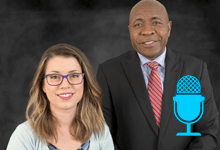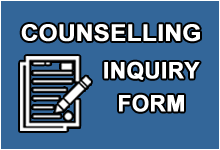Seven Tips on How to Get The Most Out of Counselling

Many of us, before experiencing counselling with a professional, base our expectations on what we have seen on television. In these depictions, the therapist usually does or says something profound and clients are miraculously delivered from their problems after one session. Many people are disappointed when they discover that it is not like this in real life. The truth is, there is no magical procedure that a therapist can use; therapy is hard work, and success to a large degree depends on the client. The client is the one who has the answers and good therapists will act as guides that will help clients discover the answers to their problems. Carl Rogers, one of the pre-eminent psychologists of the 20th century clarified the role played by good therapists when he said “”In my early professional years I was asking the question: How can I treat, or cure, or change this person? Now I would phrase the question in this way: How can I provide a relationship which this person may use for his own personal growth?” With this idea of a quick fix out of the way, this article will outline seven practical tips that will help you to get the most out of your counselling sessions.
Tip # 1: Find a competent counsellor
The first tip is to select a therapist who is qualified to do the job. Unfortunately, there is no law in Ontario that governs who can use the title ‘therapist,’ ‘psychotherapist,’ or ‘counsellor.’ As a result, anyone can advertise using these titles without having the proper qualifications for the job. In order to determine if your therapist is qualified you should ask if he or she is a certified member of the Canadian Counselling and Psychotherapy Association (CCPA). CCPA has very strict requirements as to who can become a certified member.
To become a certified member a person must have at least a Masters degree related to Counselling and must pledge to abide by the ethics of the association. Certified counsellors are allowed to use the letters CCC (Certified Canadian Counsellor) after their name. In addition, CCPA can remove a counsellor from their listing if he or she violates the Code of Ethics of the association. Another reputable association that has very high standards for therapists is the American Association for Marriage and Family Therapy (AAMFT).
CCPA also offers the designation of “professional member” to people who have a university degree or college diploma in counselling. While these counsellors can call themselves professional counsellors they have not done the extensive training of someone who holds a Masters degree in counselling and is not allowed to use the designation CCC. When checking your therapist’s credentials, make sure that he or she is a certified member of one of these associations and not merely a student member or a professional member.
Tip # 2: Plan ahead for the appointment
Prepare how you are going to communicate the essential points of your situation to your therapist. Remember that even though your counsellor might be highly trained, the success of the counselling process, to a large extent, depends on what you reveal in the session. If you arrive prepared to discuss your issue, you may be able to communicate the salient points of your situation in 5 minutes instead of 20. Of course, some times pain or embarrassment make it difficult to talk about some types of issues in the first session; however, planning ahead can save a lot of time in most cases.
Tip # 3: Arrive at least 15 minutes early for your first session
Professional counsellors will have paper work for you to complete before the session begins; this may take 5 to 10 minutes to complete. If you arrive just on time for the session, 10 minutes of your allotted time could be used up completing paperwork. At the time when the appointment is being booked, it is a good idea to ask if the appointment time includes the time needed to fill out the forms. If not, arrange to arrive earlier to do the necessary paperwork.
Tip # 4: Be on time for your sessions
Being on time is important for two key reasons: Firstly, most counsellors plan 40 to 50 minutes for each session and will most likely have another client coming in right after your session. If you are 10 minutes late, you are missing as much as a quarter of your session. Secondly, being late has its psychological costs. Some clients, when they are late, are not in a good state psychologically. I have had clients come in the session so stressed from being late that I have had to utilize relaxation techniques to get them relaxed before we could begin the session.
Other clients feel guilty about being late; and the emotion of guilt can detract from their awareness of other emotions that are pertinent to the issues to be discussed.
Tip # 5: Be clear about your goals
It is very important for you to be able to verbalize to your counsellor what you plan to achieve through counselling. Examples of clear goals are: to forgive a spouse; to get over a particular fear, or to stop feeling depressed. Most counsellors will ask you to tell them your goals. This is the counsellor’s way of knowing what issues are important to you and where to focus his or her attention initially. I say initially, because it is good to be aware that as the counselling sessions progress, other issues of importance may be uncovered that will need to be focused on.
Tip # 6: Do your homework
Some counsellors may give you tasks to do at home. Such tasks may include, writing a letter, writing out your thoughts about a particular issue, or discussing an issue with someone. These tasks may seem very trivial but they are very important in taking you closer towards your goals. If you are negligent in doing assigned homework, your goals may take much longer to be achieved.
Tip # 7: Be truthful and open about your situation
A counsellor can only help you to the extent that he or she has the correct information about your situation. If, because of pride or because you are trying to live up to a certain reputation, you paint a better picture of your situation than it really is, the counsellor will be limited in what he or she can do. For example, one client I counselled spoke very highly of her husband, telling me how understanding he was of the challenges she was facing and how supportive he was of her. However, in a later session in which the husband was present, I found him to be the exact opposite. He spoke down to her and showed no compassion for what she was going through. I was misled by my client to believe that she had great support from her husband. However, with this later revelation that he was more a source of problem than a source of help, my approach to her situation had to be revised. Because of her misrepresentation of the facts, it took much longer than was necessary for her to have a break through in her situation.
I am not trying to minimize the fact that at times the truth may be too painful to voice in the first few sessions. However, the fact is, the world’s greatest therapist can not help you if he or she doesn’t know what kind of help is needed and what your true situation is.



















